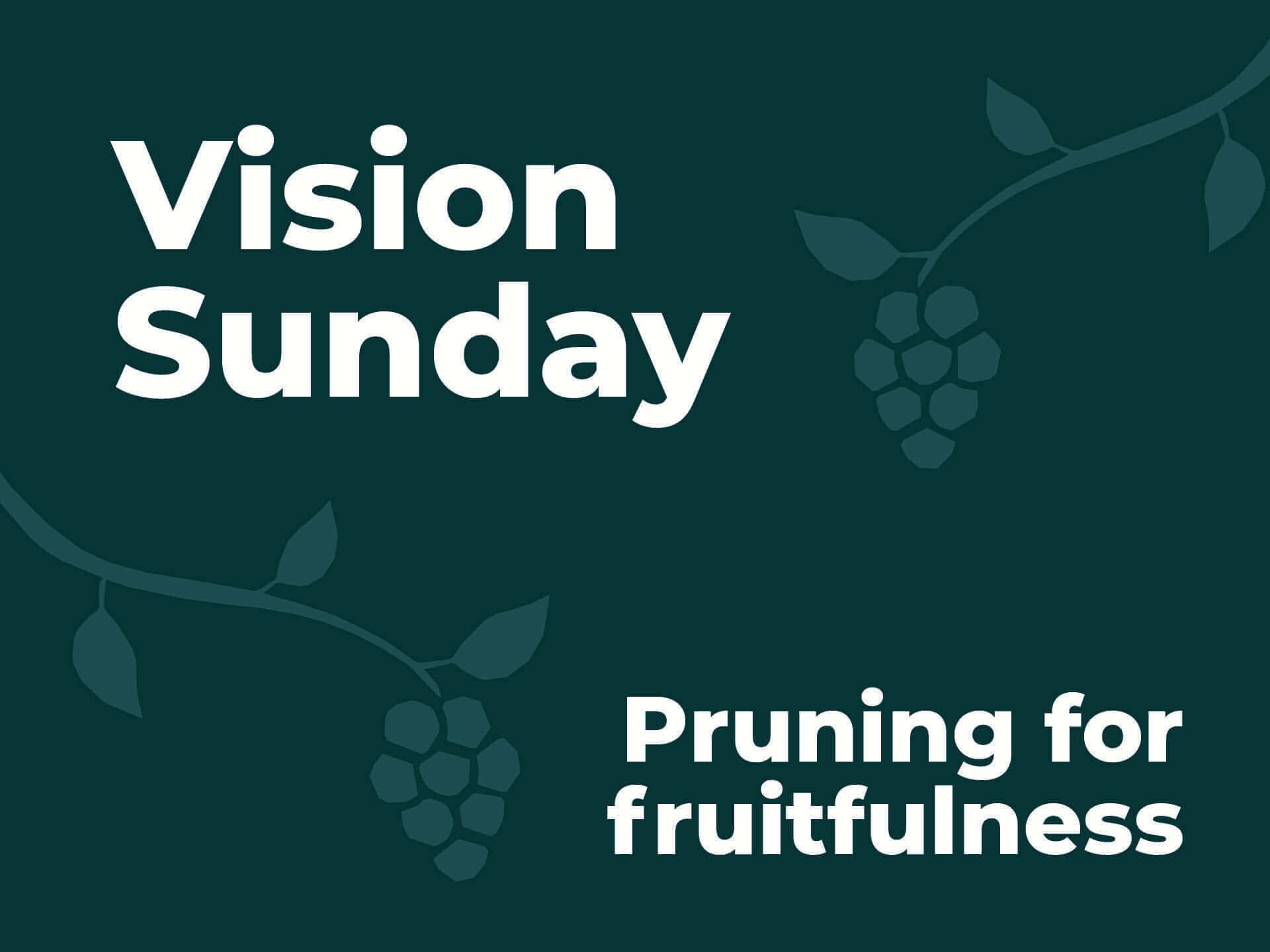Love One Another
About this series
At the start of 2022 Russ, our Lead Elder, spoke about this being a year of ‘pruning for fruitfulness.’ The imagery comes from John 15 so we are going to preach through this chapter over seven Sundays.
The vine and branches are a wonderful and inspiring image but comes at a very intense point in Jesus’ journey to the cross.
There is also a clear Old Testament connection. In the OT “the vine” or “the vineyard” was a common picture of God’s people, and a symbol of the fruitfulness God intended for them. God had done all that was necessary for his people to be fruitful - chosen them, loved them, planted them in ‘fertile’ conditions - yet they continually turned away from him, and failed to be a prophetic witness to the nations of the one true God.
Fast-forward to John’s gospel where Jesus says, “I am the true vine” - I am the truly fruitful one sent by my Father, who himself is the gardener; stay intimately connected to me and dependent on me; your fruitfulness is directly related to that connection. It is by remaining in me that you will be enabled to be the distinct and faithful people of God and a prophetic witness of him.
We have a danger of immediately thinking of fruitfulness in terms of output, usefulness, and productivity - which is certainly part of what it means to be fruitful. But fruitfulness for God is the result of a life rooted in faithfulness to him. That is surely why God’s people produced bad fruit throughout the OT - because they had been unfaithful. Bearing good fruit is a matter of growth in godliness and character; it’s a holiness question as much as a usefulness one.
This series about abiding is not a set of seven ways to be fruitful but is a careful study in John 15. However, we hope that it is extremely practical, with the thread of abiding (as the way to be fruitful) weaving through it all. Each part of the series should help us consider how we can abide in Jesus.
For example
Through staying conscious of him at all times
Submitting our decisions to him
Keeping his glory as the goal
Connecting to fellow believers
Ensuring that we’re carving out time to be alone with him in personal devotions (prayer, Bible reading, worship, etc)
Growing in our understanding of who he is and who we are in him.
About this talk
Scripture: John 15:12-17
As we come to the end of this passage, the ‘vertical’ meets the ‘horizontal,’ as it always does in the Bible. Loving God - because we are intimately connected to the vine - will result in loving people. Reference can be made again to Mark 12:28-34, to the many NT commands, to the ethics outlined in the OT and so on - loving people cannot be separated from claiming to love God or to having received his love.
The command to love one another was not a new one (see Leviticus 19:18); but Jesus redefines it because now it is his love for his disciples that is their model for loving others - “love each other as I have loved you.” He’s already loved them despite their mistakes, he’s served them wholeheartedly, even washing their feet.
But he now qualifies the depth of his love by looking ahead to what he knows is coming in a few hours’ time in agony on the cross: “Greater love has no one than this: to lay down one’s life for one’s friends.” And the love he has for them has led him to call them his friends, not only servants (though elsewhere in the NT we are referred to as servants of God). His friends do what he commands and have been brought into very close fellowship with him such that, “everything that I learned from my Father I have made known to you” and that, “whatever you ask in my name the Father will give you.”
With a final encouragement that all this has come about through his own initiative and that he has appointed them to bear fruit (it’s a promise, not just a possibility), Jesus says, “This is my command: love each other.” There really is no greater expression of the life of the vine flowing through the branches than that they love one another - that is, in large part, what it means to be fruitful.
Brain Edgar: ‘Love becomes an indispensable quality of life for the believer precisely because it is the essential dynamic of the divine life. Christians are to live in love because God is love. Love is not just a good idea, a useful expediency or a noble virtue, it is a participation in the life of God.’
We look at:
What the pattern of Jesus’ love for us shows to us, practically, about how to love others.
Some of the real-life ways we’ve been challenged in living out the command to “love each other”?
What practical encouragement can we give to help people with some ideas about how to love as Jesus has loved us?








